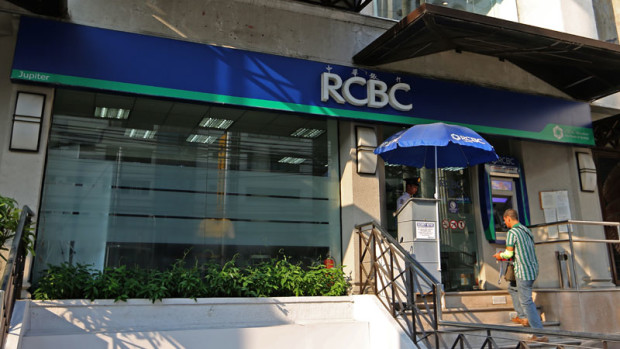RCBC: Why blame us for $81-M heist?

Rizal Commercial Banking Corp. (RCBC) Tuesday shifted the blame for the $81-million money laundering scandal to the party from whom the funds were stolen—Bangladesh Bank (BB)— saying it was the negligence of the impoverished South Asian country’s central bank that was the immediate cause of the crime.
In a statement, the external counsel of the Yuchengco-controlled universal bank stressed that it was not liable to pay BB for the theft of its funds deposited at the New York Federal Reserve Bank.
“RCBC is not the proximate cause of the theft. They have no case against us,” RCBC external counsel Thea Daep said. “BB was the one who was negligent. We therefore urge BB to be transparent to the Philippine government, which has done so much to help them and show us who really stole from them.”
The statement of Daep came after Bangladesh’s ambassador to Manila John Gomes said his country was seeking compensation from RCBC of up to $50 million, or about P2.5 billion, as committed by the bank’s former president, Lorenzo Tan, during a Senate probe on the controversy last April.
As this developed, Yuchengco-led RCBC is undergoing a new wave of senior management revamp following the resignation of some key officials.
Lawyer Ma. Celia Fernandez-Estavillo, long-time corporate secretary, director and head of the legal and regulatory affairs group, tendered her resignation effective Nov. 29, RCBC disclosed to the Philippine Stock Exchange (PSE) Tuesday.
She was one of the key resource persons who explained RCBC’s side during the Senate hearings on the $81-million Bangladesh cyberheist earlier this year.
“I signified my intention to resign after all matters pending in the Senate and the BSP (Bangko Sentral ng Pilipinas) had been resolved. At this stage in my life, I would like to move on and pursue other endeavors. It has nothing to do with the case recently filed against some of the RCBC officers. Rather, it has everything to do with what the future holds for me,” Estavillo said in a text message Tuesday when asked about the resignation.
RCBC has hired another UP Law graduate, George Gilbert dela Cuesta, to take over the post to be vacated by Estavillo. He will head the bank’s legal and regulatory affairs group with the rank of first senior vice president effective Jan. 1, 2017.
Expatriate senior vice president Koji Ozonawa also quit his post effective today. He was the Japanese liaison officer of RCBC’s Japanese business relationship office. He was formerly the senior manager of the international credit administration department of Sanwa Bank Ltd. in Tokyo in 1999.
Lizette Margaret Mary Racela, RCBC’s first SVP and group head of retail banking, has also quit her post effective today. To take over Racela’s post, the bank has hired Jonathan Diokno as the new head of retail banking group with the rank of first SVP effective Jan. 16, 2017.
To date, Bangladesh has only been able to recover $15 million of the total amount stolen by hackers who sent the funds to Philippine casino operator Solaire through RCBC. Casino junket operator Kim Wong surrendered the funds that were brought in by his Chinese clients upon learning that these were the proceeds of a crime.
Daep squarely blamed Bangladesh, pointing out that “numerous reports quoting high Bangladeshi officials and the initial findings of BB’s own investigation indicated that the heist got help from BB insiders. Shortly after, BB decided to abort its investigation, which raises a lot of questions, to say the least.”
She claimed that RCBC was just the recipient of the funds that went through “three layers of highly protected financial institutions”: The New York Federal Reserve, the Swift international money transfer service and the three global banks that eventually made the remittance.
Daep accused Gomes of “unfairly using media to pressure the Philippine government and make it its own collection agent and in the process is creating an undue and unnecessary adverse public portrayal of RCBC and, by extension, the local banking sector.”
“Ambassador Gomes has blamed everybody but itself for its loss,” she said.
The bank’s lawyer challenged the Bangladeshi central bank to produce the results of its own investigations to help shed light on who the perpetrators were since, she said, these “will be critical in helping the global banking sector protect itself.”
